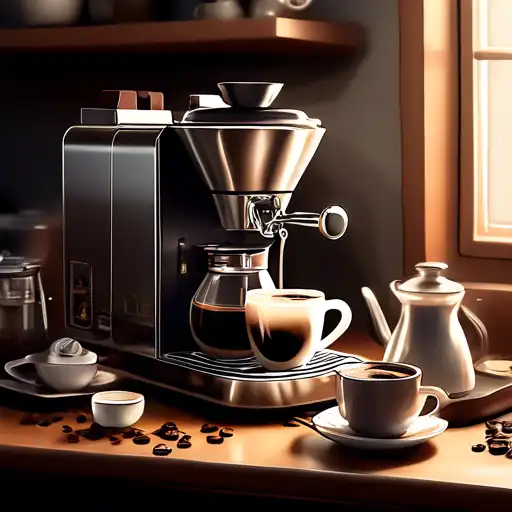Introduction to Homemade Coffee Mastery
There's something truly magical about brewing your own coffee at home. Not only does it allow you to tailor each cup to your exact preferences, but it also turns your kitchen into a personal café. Whether you're a seasoned barista or a curious newcomer, mastering the art of coffee making at home is a rewarding journey.
Choosing the Right Beans
The foundation of any great coffee is the beans. Opt for high-quality, freshly roasted beans to ensure the best flavor. Consider the roast level that suits your taste—light roasts are more acidic and retain more of the bean's original character, while dark roasts offer a bolder, richer flavor.
Grinding Your Coffee
For the freshest taste, grind your beans just before brewing. The grind size should match your brewing method—fine for espresso, medium for drip coffee, and coarse for French press. Investing in a good quality grinder can make a significant difference in your coffee's taste.
Water Quality and Temperature
Water makes up about 98% of your coffee, so its quality is crucial. Use filtered water to avoid any off-flavors. The ideal brewing temperature is between 195°F and 205°F. Too hot, and you'll extract bitter compounds; too cool, and you'll under-extract, resulting in a weak cup.
Brewing Methods
There are numerous ways to brew coffee at home, each offering a unique flavor profile. Here are a few popular methods:
- French Press: Offers a rich, full-bodied coffee.
- Pour Over: Produces a clean, nuanced cup.
- Espresso Machine: For a concentrated, flavorful shot.
- AeroPress: Versatile and great for experimenting.
Experimenting with Ratios and Recipes
The standard coffee-to-water ratio is about 1:16, but feel free to adjust based on your taste preferences. Experimenting with different ratios, brewing times, and even water temperatures can help you discover your perfect cup. Don't forget to explore various coffee recipes to add some variety to your routine.
Maintaining Your Equipment
Regular cleaning and maintenance of your coffee equipment are essential for ensuring the best taste and longevity of your tools. Residue and oils from previous brews can affect the flavor of your coffee, so make sure to clean your gear after each use.
Conclusion
Making the perfect coffee at home is an art that requires patience, practice, and a bit of experimentation. By paying attention to the details—from the beans you choose to the water you use—you can elevate your home coffee experience to rival that of your favorite café. Remember, the journey to coffee perfection is as enjoyable as the destination.
